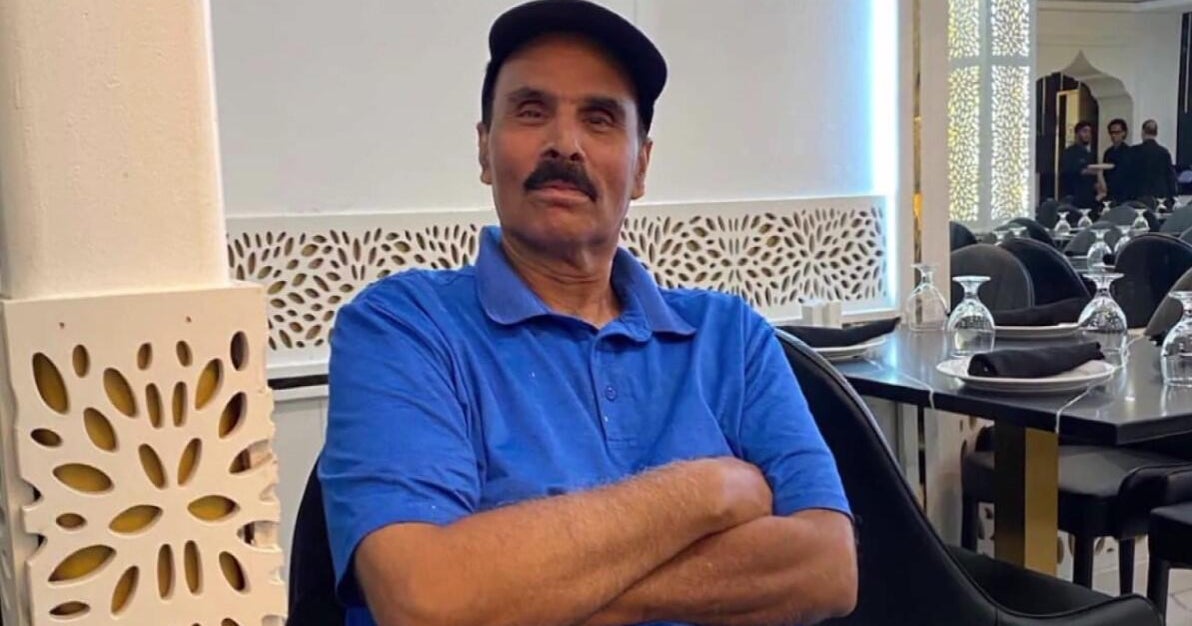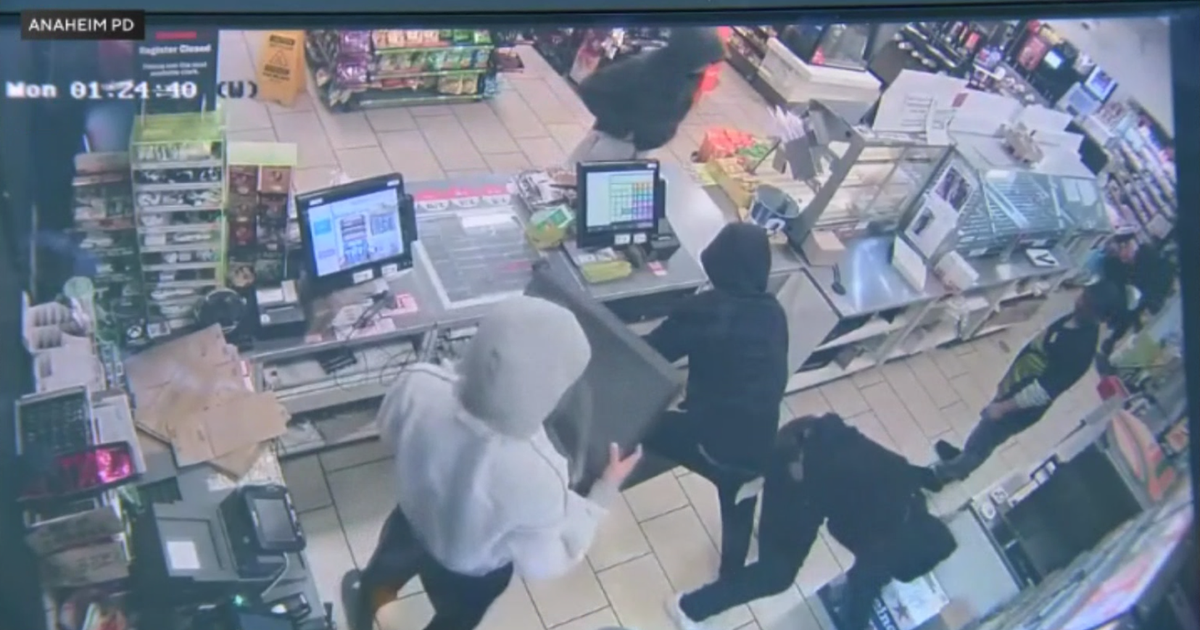2023 year in review: What the CBS 2 Investigators uncovered this year
CHICAGO (CBS) -- In 2023, the CBS 2 Investigators uncovered a pattern of Illinois foster children being moved repeatedly from one place to another; the use of an obscure legal tool by U.S. Immigration and Customs Enforcement to demand data from Illinois restaurants, schools and abortion clinics; a questionable cash deal by a realty company that has prompted lawsuits by state attorneys general; and an incident in which a woman and her teenage daughter found themselves trapped inside an electric car that lost power.
The CBS 2 Investigators this year also launched Investigating Injustice, a series examining the disparate impact crime has on Black women in Chicago.
As we close the books on another year, we wanted to take a moment to focus on why what we do matters.
Justice delayed for two Chicago moms whose sons were murdered in 2017, 2018
The CBS 2 Investigators reported in March on the story of two moms, two sons, two murders, and two arrests – but not one of the cases had gone to trial. This was after almost four years for one mother, and almost six years for the other, since the suspects were arrested and charged.
Ryan Hatchett, 29, was shot and killed in the Humboldt Park neighborhood in June 2018. A suspect, Phillip McAbee was identified by witnesses immediately, but he was not found, arrested, and charged until 2019.
Nearly five years after Hatchett's murder and four years after McAbee's arrest, the case still was not close to going to trial.
There were several delays over the years. McAbee's public defender withdrew early on and McAbee began defending himself. Then the COVID-19 pandemic shut down Cook County courts for six months in 2020.
Meanwhile, Keshawn Slaughter was shot and killed in April 2017, two weeks before his 27th birthday. Slaughter's 11-year-old stepson was also shot, but the boy survived.
Police arrested Leander Townsell in June 2017, two months after the deadly shooting. Illinois State Police tested a gun Townsell had been arrested with earlier and discovered it to be the murder weapon.
Townsell was also picked out of a police lineup. Townsell was charged with murder and attempted murder. His case first went to court in July 2017. But as of March 2023, Townsell had not gone to trial either.
The COVID-19 pandemic delayed Townsell's case. Then the case had to be reassigned to another judge after the first one retired.
The CBS 2 Investigators analysis of Illinois Courts data on filed, disposed of and pending cases by year, reveals Hatchett's and Brumfield's cases are not the exceptions.
Pending felony cases like their sons' murder cases, have hovered around the 23,000 to 24,000 mark for years.
But when the pandemic hit and courts were closed that number rose to more than 29,000 at the end of 2020. The next year it ticked down slightly but ended 2021 with more than 27,000 cases pending. That's the highest number in nearly a decade.
Those increased unresolved felony cases are a small part of the reason the backlog of pending criminal cases is skyrocketing. At the end of both 2020 and 2021 the number of pending criminal cases sat near or above 250,000. The majority of those open cases are criminal misdemeanors.
Illinois foster children are being moved repeatedly from one place to another, and traumatized
More than 60,000 foster children have been stuck in a vicious cycle of moving from one place to another - four, 10, 20, and even more homes and institutions.
Children often suffer trauma as they constantly start over with new caregivers, communities, schools, and friends. Their paths should have been different.
In 1991, a federal court ordered the Illinois Department of Children and Family Services (DCFS) to follow a consent decree. It laid out the foster care system's systemic failures and mandated reforms, including stopping the practice of moving children repeatedly. That same year, 4-year-old Mallory Stout was taken into protective DCFS custody and began her journey in foster care.
One woman, Mallory, had a foster home where she loved living. But her foster mother became ill, and DCFS had to remove Mallory and find her a new home. That began her childhood full of turmoil.
DCFS records reveal she spent 17 years in the state child welfare system and was moved at least 67 times.
DCFS keeps data on the history of all the children in their care, including tracking how often they are moved. The CBS 2 Investigators fought more than a year for that data and finally obtained it through the Freedom of Information Act. The data are complex, with records on roughly 150,000 children. Every child's name was removed and instead assigned an identification number.
Using this data with Mallory, we were able to find her records under identification number 1729599. We tracked all 67 times she had to pack up and move between foster homes, group homes, institutions, and hospitals.
After analyzing the data, CBS 2 found many children moved from one place to another. Nearly 62,000 kids, 41% of the children in the system, moved four times or more. About 7,000 children were placed 20 or more times.
And sadly like Mallory, 320 children moved at least 67 times. There were even 44 children moved a staggering 100 times.
Mallory was part of a group of 14 adults who grew up in DCFS care, and spoke out in 2019 to try and stop DCFS practices they say are destructive. Carnell Brown was part of that group, and knows the trauma that comes with being frequently moved. Carnell says DCFS repeatedly had him pack up and move to different places – he estimated it was about 30.
Mallory and Carnell both said their bad placements were followed by neglect, and even more abuse. The system that was supposed to protect them - failed.
Exclusive: Scam victim launches clever plan to gather evidence and help authorities catch a con man
Adam Albin lost tens of thousands of dollars to a man he thought was a good friend.
Albin first met Rick Dugo at a gym in 2018, where Dugo pitched Albin an electronics deal too good to pass up. The deal was to buy 95 iPhones at a deep discount and then resell them for a profit.
But after giving more than $18,000 in cash to Dugo for the phones, Albin never got any phones to resell.
That's when Albin did something many other people would never do – on his own, he gathered evidence and handed it over to authorities. It was the beginning of his four-and-a-half-year journey to justice.
The plan began with a simple, yet ingenious move. Albin created a spoof page.
The social media page featured Dugo's face, name, and a message, reading: "My name is Rick Dugo. I'm a con artist. If I promised anybody any money, please reach out to this email."
It worked. Emails began flooding Albin's inbox.
Albin called each one of them, gathering their information and tracking it all in a list. The list featured their names, what happened to them, and when.
He heard stories of bad deals involving Rolex watches, cars, car washes and property. All told, Albin calculated the losses to be close to a million dollars.
Albin also gathered court records, mostly civil cases, going back decades across multiple states. Some were won by the victims, others won by Dugo. Albin also saved screenshots of texts exchanged between himself and Dugo.
He kept it all in a simple red folder he calls 'The Dugo File.' He took that to Lake County, Illinois Sheriff's office, State's Attorney's office, and task force investigators.
In August 2018, prosecutors asked Albin to wear a wire to catch Dugo basically admitting his part in a crime. The Dugo File, the wire recording, and Lake County investigators' own cross-country travels to chase down leads eventually resulted in the arrest of Rick Dugo in March 2021.
ICE is demanding data from Illinois abortion clinics, restaurants, schools and more using obscure legal tool
The CBS 2 Investigators learned in May that the U.S. Immigration and Customs Enforcement (ICE) was using an obscure legal tool to demand data from organizations in Illinois, and it had happened thousands of times over the last few years.
From schools to abortion clinics to state agencies, ICE agents were frequently using an administrative subpoena, also known as a 1509 summons, in questionable ways to seek records and information.
This type of subpoena does not require a judge's approval. It's typically used for investigations related to customs fees, duties and importing goods, according to federal rules. But when WIRED's Dhruv Mehrotra first got his hands on a database from ICE through a Freedom of Information Act request, it showed widespread use. Agents utilized this tool to demand information from companies nationwide more than 172,000 times from 2016 to mid-August 2022, the outlet reported.
"While these administrative subpoenas… are meant to be used only in criminal investigations about illegal imports or unpaid customs duties, WIRED found that the agency has deployed them to seek records that seemingly have little or nothing to do with customs violations," Mehrotra wrote when he broke the story in April.
CBS 2 obtained a copy of the database from WIRED. Our analysis found many of those companies that ICE targeted are in Illinois, and some experts said it could be illegal.
ICE agents used the 1509 summons to demand records from Illinois entities more than 3,700 times since 2016, with the majority in Chicago, the database shows. That includes internet companies, grocery stores, banks, and restaurant chains. Several hotels and retail stores were also issued named in the data.
In addition, ICE demanded information from a west suburban elementary school, several universities, and a major abortion provider.
We found ICE's use of this tool is not only widespread – it ramped up over the last several years, both nationwide and in Illinois. In 2016, ICE issued nearly 18,000 subpoenas across the country. By 2021, that more than doubled to over 36,000.
Investigating Injustice: Black women hit hard by crime in Chicago
The CBS 2 Investigators this year launched Investigating Injustice, a series examining the disparate impact crime has on Black women in Chicago.
Through public records requests, CBS Chicago obtained police data that contains the victim profiles for every reported incidents in the city over the last two decades, accounting for more than 8 million victimizations, and one group consistently held the burden of crime: Black women.
In 2022, there were more than 26,000 violent crimes and more than 212,000 non-violent crimes in Chicago ranging from shootings and robberies to retail and motor vehicle theft, affecting roughly 260,000 victims.
About 67,000 people, or 25% of crime victims were Black women, according to a CBS Chicago analysis of police data.
Black women only make up 16% of the city's population, but over-index in most categories of crime, accounting for 1 in 4 victimizations. That ratio is more pronounced – about 1 in 3 – when accounting only for reported crimes with race data, and excluding crimes without clear victims such as retail theft, FOID card violations or narcotics arrests.
The resulting analysis becomes the closest accounting (short of actual names) of who is directly affected by crime in Chicago.
Read and watch more from our Investigating Injustice series below:
- Black women hit hard by crime in Chicago
- Alderperson pushes for task force after CBS 2 Investigation exposing Black women bear burden of crime in Chicago
- Black women share their frightening experiences being targets of crime in Chicago
- Kim Foxx calls findings showing as many as 1 in 3 Black women in 2022 were victims of crime "jarring"
- Community groups call for action after CBS 2 investigation into Black women and crime
Questionable 'cash deal' offered to homeowners in Illinois criticized by consumer advocates
It was a real estate listing agreement that paid homeowners for the right to sell their homes down the road. The firm behind it touted it as a win-win.
In what is known as a "Homeowner Benefit Agreement," a homeowner gets a quick infusion of cash, and the real estate company gets a promised future payment.
But in July that firm, MV Realty, was facing several lawsuits from state attorneys general, a growing chorus of questions from consumer advocates, and complaints from people who took the deal without a full understanding of the terms.
The 40-year contract length, and the possibility it could extend to a homeowner's heirs, were among the terms questioned in lawsuits filed by Attorneys General in several states.
A CBS 2 analysis of county deed records revealed hundreds of homeowners in the Chicago area who signed such an agreement with MV Realty, which is based in Florida.
MV Realty disputed complaints claiming that filing a Memo of a Homeowner Benefit Agreement equaled a lien on anyone's property, but paused signing up any new agreements until the legal matters it faces are resolved.
Tylenol Murders: Chilling FBI interviews with prime suspect James Lewis released after his death
CBS 2 this year obtained never-before-released video interviews with James Lewis, the prime suspect in the 1982 Tylenol murders, who describes in chilling detail how he believed the killer would have committed the crime.
This came nearly one month after Lewis died of natural causes at his home in Cambridge, Massachusetts. The 76-year-old was never charged in connection with the killings.
Officials said they are still actively investigating the 40-year-old cold case. Before Lewis' death, police provided CBS 2 some records from the investigation, but this is the first time police released interviews with Lewis. CBS 2 obtained the videos and other records from the case through a Freedom of Information Act (FOIA) request.
In September of 1982, seven people across Chicagoland were killed after taking Tylenol capsules laced with cyanide. At the time, the capsules were not sealed shut, and the boxes did not have tamper proof or tamper evident packaging.
Outside of a handful of other persons of interest, Lewis was a prime suspect from the beginning. He was convicted of attempted extortion after sending a letter to Johnson & Johnson, the makers of Tylenol, saying he would stop the killings if $1 million was wired to a specific bank account. But police could never place Lewis in Chicago shortly before the murders, and he repeatedly denied he was the killer.
Together, the newly released video and documents paint a picture of how authorities worked for decades to build a case against Lewis. The records also show how the man so closely associated with the case had a pattern of researching, theorizing and demonstrating to investigators how he thought the killer could've gotten away with it.
Meanwhile, a groundbreaking new documentary from WBBM Films/CBS Chicago and See It Now Studios was released this year, investigating the chaos of the Tylenol murders.
PAINKILLER: THE TYLENOL MURDERS premiered exclusively on Paramount+ on Oct. 10. Using hours of exclusive archival footage, the five-part docuseries transports viewers back four decades to the moments after the twisted killer laced Tylenol pills with cyanide and killed those even people. Fear and panic shot across the country, with no one knowing how widespread the poisonings were.
Chicago police officer reveals what new moms face on the force
For three years, Chicago Police officer Erin Kreho documented filthy conditions inside rooms she was told to use when she needed to pump breast milk. She faced unsanitary conditions and a lack of privacy after having her children. Kreho also has filed formal complaints about the state and federal violations. Despite that, she says the Chicago Police Department has failed to fix the problems.
"It shouldn't involve cleaning a room or asking to use a place that your coworkers can't see you... in a state of undress," said Kreho. "Or worrying about the contaminants that are, you know, obviously falling into the milk."
Kreho said she would have to use wipes to clean very dirty spaces and chairs she used before pumping.
Federal and state statutes require employers to provide lactating women with a clean room to pump with a locking door lock for privacy. It can't be a bathroom. Kreho says the department, entrusted with upholding the law, has been breaking it. She began collecting evidence, photos and videos to document the poor conditions.
She says had to pump in all kinds of unacceptable conditions - in dirty bathrooms, locker, and storage rooms. She described one restroom where she said she had to drag in chairs and sit near the outlets she could find to pump.
"I'm putting my bag on the floor. The pump would go on my lap, and yes, I'm very close to a urinal," said Kreho. "I was frustrated, I was really anxious. I would come home nauseous about it."
Kreho filed two complaints, in 2021, with the Illinois Department of Human Rights. Each one detailed the poor conditions.
The Chicago Police Department declined to comment because of pending litigation.
Electric rental car breaks down, traps Gurnee mom, daughter inside
Rental car companies are increasingly adding electric vehicles to their fleets. Hertz alone has, so far, bought 56,000. But these cars can have unique challenges for drivers. One mother and daughter found out the hard way while on a trip to look at several colleges around the country.
Becky Liebau and her 16-year-old daughter, from the Village of Gurnee, found themselves trapped on the side of a road when their electric rental car died. They were trapped inside the vehicle too. No help came.
The problem started when a Hertz rental agent told her they overbooked and all they had left was an electric vehicle. She had reserved a gas-powered sedan, but said she was told only a Tesla was available – and it was closing time. Liebau was stranded, desperate and took the Tesla. She had never driven an electric vehicle.
The pair were driving mostly in rural areas and could not find any Tesla charging stations. They found other types of charging stations, but those required a special adapter. Hertz never provided one. As they continued to search for a Tesla station, the car went completely dead.
The next trouble - their cell phones were about to go dead. They ended up using the battery power from a laptop in their luggage to charge one cell phone and call their own tow truck driver. Meanwhile, they were still stuck inside the car.
Finally the tow truck they called showed up. The driver told Liebau about a button she needed to press to get out of the car.
As bad as all this was, the Hertz and other unexpected bills totaling about a thousand dollars - made it even worse.
"I started getting monthly invoices from Hertz," said Liebau who refused to pay.
She says the company took her to collections. Then tried to ban her from renting a car.
In a phone call, a Hertz spokesperson apologized for Liebau's experience and admitted a number of things went wrong - including giving her an electric car without an adapter. The spokesperson also said an adapter costs about $250, and often go missing and are targeted by thieves.
Venue that hosted party leading to Chicago mass shooting has been in trouble with city before
A North Lawndale neighborhood business was ordered closed by Chicago Police, after it hosted a Halloween party that escalated into a mass shooting that wounded 15 people this past weekend.
City records reviewed by CBS News Chicago also show the space may have been operating as an unlicensed party venue for years, and city inspectors previously documented the property as "dangerous and hazardous."
The shooting happened just after 1 a.m. Sunday, Oct. 29 near 13th Street and Pulaski Road. At least 15 people were hurt, and two were left in critical condition. Police said a suspect was captured a short distance away and placed into custody. A handgun was also recovered.
Monday morning, police issued a summary closure order for Studio 1258, at 1258 S. Pulaski Rd, which was hosting the Halloween party at the time of the shooting. Publicly available inspection records from the city's Department of Buildings show in 2021, inspectors issued several building code violations for operating the building as an "unlicensed party venue," for not having fire extinguishers or smoke detectors on the first or second floors, and for performing work on a gut rehab without obtaining a permit or submitting proper plans from an architect or structural engineer.
The city's Department of Business Affairs and Consumer Protection (BACP) said Studio 1258 was doing business as Hampton Brand Inc. Studio 1258 has an active current limited business license for an art gallery and art sales. But in 2021, city inspectors also questioned whether the property was actually being used that way.
"There are no plans or permits for the current use of this space as an unlicensed small assembly/public place of assembly," a June 2021 inspection report said. "The current license states this is an 'art gallery,' yet there is no artwork."
And this past May, BACP also issued cease-and-desist orders and citations to the business for operating without a public place of amusement license and operating without a liquor license.
Some neighbors said the business' history is a poorly kept secret — and they wanted to see the club to be closed for good.
On Tuesday, Oct. 31, William Groves, 48, was charged in the mass shooting. He is facing 15 felony counts of attempted murder, 15 counts of aggravated battery with a firearm, one count of aggravated unlawful use of a weapon by a felon, and one count of aggravated discharge of a firearm.
"They tortured him:" police used Taser on special needs teen for breaking window before shooting him
It was a broken window complaint that led to a 14-year-old boy being shot by a police officer in south suburban Sauk Village. But before being shot, the teen had been repeatedly Tasered. The intense pain caused the teen to run.
"This kid did not deserve what they dished out," said Bettina Washington, the boy's legal guardian.
Washington calls the boy her son. CBS 2 showed her body camera footage that had been kept secret for a year and a half. A chilling sound that lasted for 11 seconds.
There are two settings for Officer Seth Brown's Taser; one setting shoots darts connected to wires, penetrating skin to immobilize a person. The other setting is called Drive Stun Mode, where the device is directly pressed against a person like a cattle prod. Brown was seen pressing his into the teen's clothing.
As the boy got away from the Taser, he started to sprint. At that point, his encounter with police became nearly fatal. The other officer, Sergeant Scott Langan, drew his gun from his holster, aimed it, and fired - shooting the teen just below his belt on his hip. Fearing he might get shot again, he hid in a nearby yard, bleeding.
When paramedics arrived, the 8th grader came out of hiding for medical help and was taken to a hospital.
Days later, Sergeant Langan told officials investigating his actions that the shooting was an accident and he thought he was firing his Taser.
Washington is upset that neither officer was charged for their role in injuring the teen, and she's also upset to learn a police disciplinary investigation into the incident didn't even begin until last month - a year and a half after the teen was tasered and shot.
Two men detail their claims of abuse at a place where young children were sent for help
Patients, some from the Chicago area, at a residential treatment center in Arkansas claim in a recently filed lawsuit that they were sexually and physically abused when they were children.
The facility, called Lord's Ranch, is now shuttered for unrelated reasons, but some of those now suing shared their stories in December. The former owner of the Ranch denies the allegations.
One man who did not want to be identified was 15 when he was sent to the Ranch. He was one of hundreds. He said he was sent there after getting into trouble in his neighborhood.
He claims the worst abuse was perpetrated by a man he should have been able to trust the most -- the head therapist, Emmett Presley.
The former student alleges the first time Presley started to do something inappropriate was before basketball practice in the 1990s. The then-teen was changing into his uniform when he says Presley suddenly showed up.
Presley's accuser in the lawsuit filing says, "He would try to help, help me apply this like ointment, and I would just like look and be like, 'OK, why are you in here right now?'"
Another Chicago man who is also part of the suit says the same therapist sexually abused him, too.
He said Presley "grabbed my pants and pulled it down... and exposed me."
The two men are among eight John Does now coming forward claiming in the civil suit filed in the Eastern District of Arkansas that abuse occurred at the Ranch in the 1980s and 1990s -- children either sent there through the juvenile justice system, their public schools, or by child welfare agencies.
During a phone call with the CBS 2 Investigators, Presley said the accusations were absolutely false. The attorney representing ranch owner Ted Suhl called the accusations meritless and said the Suhls strongly deny these false allegations and look forward to their day in court.
Chicago man, Kevin Jackson, receives second look at his murder conviction after proclaiming innocence from start
After more than two decades in prison for a crime he has insisted all along that he didn't commit, Kevin Jackson's case received a game-changing second look.
But that didn't happen until a possible conflict of interest was revealed between a Chicago Police detective and an employee in the prosecutor's office. And Jackson's future isn't the only one at stake.
Jackson has always insisted he had nothing to do with the May 2001 early-morning murder of a man named Ernest Jenkins at a Citgo gas station on the corner of Damen Avenue and Garfield Boulevard on the cusp of the Back of the Yards and West Englewood communities.
He still gets choked up thinking about how hard one detective — then-Chicago Police Detective Brian Forberg — and his partner pressured him to confess. There was never any evidence even placing Jackson at the scene, and four witnesses signed statements written by the detectives pointing the finger at Jackson – including his own cousin, Manuel Stewart, who later recanted.
But Jackson was convicted, and sentenced to 45 years.
Unfortunately, Detective Forberg in particular has developed a reputation. The decorated CPD sergeant has been accused of witness coercion in several lawsuits and pending appeals.
And Jackson is one of about 20 current and former inmates — primarily Black men — who also claim the officer coerced and manipulated witnesses into lying.
The Cook County States Attorney's Office's Conviction Integrity Unit — or CIU — reviewed Jackson's case in 2019. Despite Jackson's attorneys raising new evidence of his innocence – and the issues about police misconduct and intimidation – his case was passed over.
"It didn't make sense now," Jackson said. "I always used to wonder like, what's going on, like, how could they continue to deny me?"
Then, determined to find out why, Jackson's attorneys kept digging – and came across something that absolutely stunned them.
They learned that Detective Forberg was married to an assistant Cook County state's attorney working in the Conviction Integrity Unit at the same time Jackson's case was under review. This fact was never disclosed.
While Cook County State's Attorney Kim Foxx's office did not agree there was a conflict at all in this case, they did decide to appoint a special assistant state's attorney to conduct an exhaustive review of Jackson's case.








